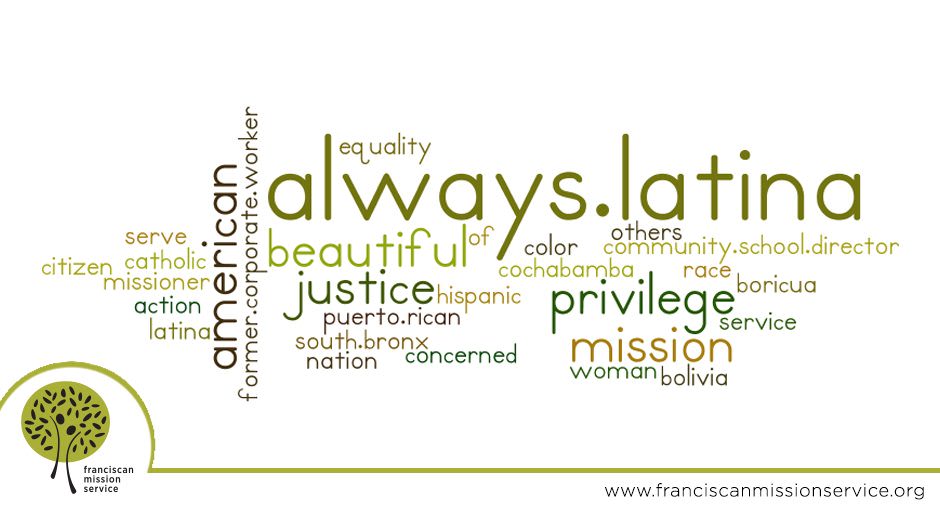Once Latina, Always Latina: A Returned Missioner Talks Race

Editor’s Note: FMS alumna Hady Mendez—recently returned from two years of service in Cochabamba, Bolivia—reflects on the role that race plays in her reintegration back from mission and in daily life in the United States.
Hi again. It’s been a little over a year since my return from Cochabamba. So much has changed since then! I am currently back in New York City working at an elementary school in the South Bronx. As a Community School Director, part of my job is to create a school culture that values and respects everyone who walks through the doors of our school. I work closely with families, offering them acceptance, support, and a safe space to try new things. The work is hard but rewarding. The job I have now is the job I dreamed of having when I parted ways with Corporate America and decided to go on mission with FMS back in 2013.
I’m back to talk about race and what it meant to me as a Hispanic woman living in Bolivia, as well as what it means to me to be a Hispanic woman back in the United States.
Why talk about race? Because, let’s face it, race is a part of life, especially these days. But it’s not a new concept. Far from it. Race came up on mission all the time!
I remember when I first met my language teachers in Bolivia. They told me, “Eres casi Latina,” which translates to, “You are almost Latina.” How can I be a fraction of myself? I think they meant it as a compliment, but I was very offended.
Once, I was at the market with one of my American friends. That friend has blue eyes and light brown hair. I asked for the price of an item on her behalf, since she didn’t speak much Spanish at the time. The saleslady responded with the price and said, “Pero yo quiero que ella me compre,” which loosely translates to, “But I want her to buy it from me.”
Then there was the time when I was trying to rent an apartment and I called a number I found in the local paper. The woman on the other end of the phone demanded to know where I was from since my accent was so different. “Eres brasilera?” she asked. Are you Brazilian? I knew what that meant. Bolivians don’t have a high opinion of Brazilians. Therefore she didn’t have a high opinion of me. I hung up the phone. From that point forward, I decided to identify myself as a “missioner.” Everyone loves a good missioner!
I could go on with more examples, but I’ll stop there. Trust me when I tell you that even thousands of miles away, race was still something that came up on mission all the time.
Race has also come up as part of my re-entry into the US. My missioner friends and I came back to two different realities. They are white Americans who can speak Spanish and spend time in Latino spaces while still maintaining their white privilege. Me? I’m Latina. Same as I was before I left. In that regard, nothing has changed for me.
And then there’s our present reality. The one where, under the law of the land, some people are treated unjustly based purely on the color of their skin, their country of origin, or the religion they practice.
It’s the new administration that has made me want to talk about race again. Because we need to be honest about the implications that race has. There is one thing that separates me from most of the people I want on mission with. That difference is privilege. White Americans can always use their privilege card.
If you ask me, I think they should use their privilege. To bring about change. To help get the country back on track. To truly make America great again. Our country is in crisis mode and we need all hands on deck more than ever!
I will never have white privilege. Sometimes that makes me sad. At other times, it makes me angry. But that doesn’t mean I won’t be working for justice. Or that I won’t be out there protesting. Because I will—for our country now and for the future of the students I work with. Because I have to. Because we all have to. Our faith requires it.
Paz y bien from Nueva York!
Reflection Question: when have you encountered injustice in your daily life? What can you do today to work for justice and peace?
Tagged in:
